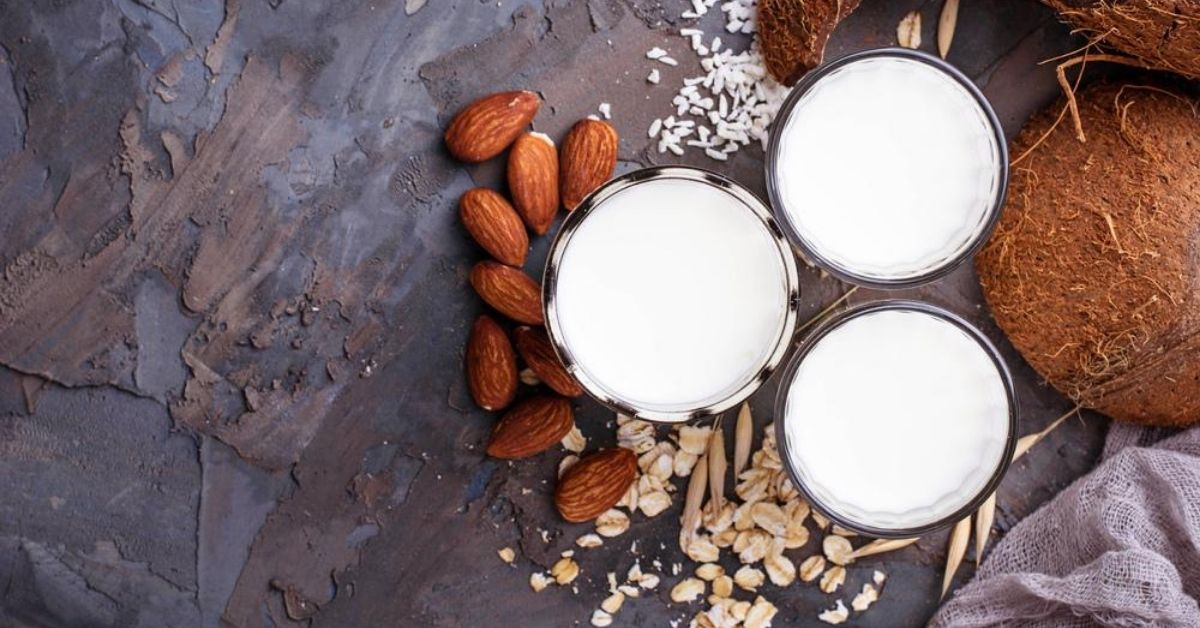Around the world, consumers are increasingly switching from traditional dairy milk to plant-based alternatives. And this year’s World Plant Milk Day on August 22 looks to be the biggest one yet; Switch4Good, a dairy-free advocacy organization, has joined the initiative originally started in 2017 by Robbie Lockie, the co-founder of Plant Based News.
In just these past few years, plant-based milk and other non-dairy food and beverages have exploded, presenting huge opportunities for brands ranging from international consumer packaged goods companies to local coffee shops. These opportunities exist for more than just vegan consumers. Non-dairy options can also appeal to a growing number of customers considering incorporating more plant-based alternatives into their diets due to health, environmental or ethical concerns, or a combination of these reasons.
SUBSCRIBE to our Weekly Newsletter to receive articles to your inbox!
The Growth of Plant Milk
The plant-based milk category alone is worth $2 billion in the United States, having grown 14% from 2017-2019, according to research from Spins and The Good Food Institute (GFI). Already, 41% of U.S. households buy plant-based milk, reports GFI, indicating that this trend is becoming mainstream.
What’s behind this growth? For one, more consumers than you might assume are lactose intolerant. Nearly two out of three people have “a reduced ability to digest lactose after infancy,” according to Genetics Home Reference, part of the umbrella of the U.S. Department of Health and Human Services.
Consumers also crave plant milk for other reasons, such as the reduced environmental impact of many plant-based beverages. There’s not necessarily a health difference between plant milk and daily milk aside from allergies/lactose intolerance, but “[p]lant-based products are less environmentally taxing than animal-based products,” reports Harvard Medical School.
For similar reasons, other categories of plant-based dairy, such as plant-based ice cream, yogurt and cheese, have grown by 53% in total from 2017-2019, according to Spins and GFI. Opportunities in Plant Milk
Opportunities in Plant Milk
With the growing demand for plant milk and other non-dairy alternatives, food and beverage brands have a wide range of opportunities to reach consumers. Beyond stalwarts like almond milk and soy milk, other varieties ranging from macadamia milk to banana milk have cropped up, so there’s a lot of ways to enter the market.
As research firm Mintel finds, brands should look at emerging plant sources for non-dairy alternatives — namely oat, coconut and pea protein — to draw in North American customers.
In addition to reaching consumers with interesting ingredients, brands can reach consumers with unique, indulgent flavors. For example, avocado can be used to make a creamy non-dairy type of ice cream. Relatedly, brands can incorporate healthy ingredients while also creating premium products. Look at the rise of golden milk, an Ayurvedic drink which typically combines plant milk with warming spices like turmeric, as a good representation of this trend.
RELATED: Mainstream Flavor Trends Surfacing From COVID-19
Giving Consumers More
Tapping into these trends makes a difference for food and beverage brands, because as the plant milk market matures, consumers want more than simply plant-based products, advises Mintel. When it comes to flavors, the top 8 choices for alternative dairy products include: unflavored, vanilla, chocolate, strawberry, blueberry, matcha, banana and mango. Beyond taste, consumers also want these products to meet their health and environmental desires.
For example, Mintel recommends that brands incorporate plant-based protein and added nutrients that can rival the amount and quality of protein and calcium found in traditional dairy milk. Prebiotic and probiotic functional claims are also the fastest-growing additions to plant-based milk and yogurt, finds Mintel, which ties into the growing emphasis on digestion among consumers.
Food and beverage brands can also get more mileage out plant-based milk and related non-dairy options by emphasizing the environmental aspects of their products. Mintel finds that 36% of plant-based drinks, yogurt and ice cream in the U.S. are touted to be organic, more than twice the share of traditional dairy offerings. Furthermore, companies can offer plant-based options that use sustainable packaging or are produced with the environment in mind, such as at facilities that use renewable energy.
Focusing on these areas can help food and beverage companies appeal to the growing market for non-dairy options, while creating new excitement in what has otherwise been a relatively static category. A cafe, for example, can only create so much buzz by offering skim milk lattes as an alternative to whole milk ones. Yet offering coconut whip cream, warm almond-based golden milk or cashew creamer can be differentiators that delight customers.  So for World Plant Milk Day, consider how your company can tap into these trends as both a business opportunity and as a way to create a more sustainable world. We’ve conducted extensive research into dairy alternatives including insights, trends and consumer-backed flavor concepts. Our Alternative Dairy Report, featuring new flavor concepts tested with +5,000 consumers, is available for our current and prospective customers. Reach out to a member of our team for access to the report!
So for World Plant Milk Day, consider how your company can tap into these trends as both a business opportunity and as a way to create a more sustainable world. We’ve conducted extensive research into dairy alternatives including insights, trends and consumer-backed flavor concepts. Our Alternative Dairy Report, featuring new flavor concepts tested with +5,000 consumers, is available for our current and prospective customers. Reach out to a member of our team for access to the report!





